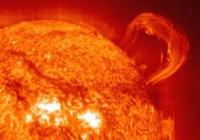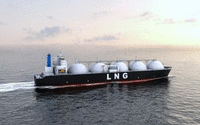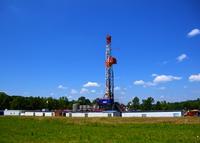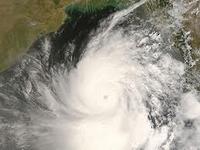-
Toilet Challenge, 1: Caltech’s solar-powered toilet wins Reinvent Toilet Challenge
The World Health Organization reports that 2.5 billion people around the globe are without access to sanitary toilets, which results in the spread of deadly diseases; every year, 1.5 million people, mostly those under the age of five, die from diarrhea; Caltech scientist awarded grant to develop solar-powered sanitation system
-
-
Toilet Challenge, 2: Loughborough’s hydrocarbonization design wins second Reinvent the Toilet Challenge prize
Researchers from Loughborough University, located in Leicestershire, United Kingdom , won second prize in the Reinvent the Toilet Challenge; their toilet uses a process called Continuous Thermal Hydrocarbonization which kills all pathogens to create safe to handle, valuable material and uses power from heat generated during processing
-
-
Toilet Challenge, 3: U Toronto wins toilet challenge third place for sand filter and UV-ray design
The U of T solution is novel in its simplicity. It uses a sand filter and UV-ray disinfecting chamber to process liquid waste and a smolder chamber, similar to a charcoal barbeque, to incinerate solid waste that has been flattened and dried in a roller/belt assembly
-
-
Unmanned civilian drones vulnerable to hijacking
Unmanned drones have become the eyes and ears of the military in recent years, giving them an advantage in intelligence gathering and in operations without risking soldiers’ lives; the drones’ versatility and low price have made them an attractive tool for domestic law enforcement and first response missions; there is one glitch, though: drones can be hijacked; if that happens, these swift, unmanned aircrafts could become weapons for terrorists
-
-
New earthquake assessment finds increased risk for Washington Dams
Central Washington state has always been considered low risk for earthquakes back when big hydropower dams went up on the Columbia River many decades ago; a recently completed seismic hazard assessment, however, shows that there is a much greater earthquake potential for the area than previously thought; now, dam owners have to figure out whether their dams can hold up to an earthquake; if retrofits are needed, they could cost hundreds of millions of dollars
-
-
New system could predict solar flares, give advance warning to help protect power grids

Researchers may have discovered a new method to predict solar flares more than a day before they occur, providing advance warning to help protect satellites, power grids, and astronauts from potentially dangerous radiation
-
-
Close to 1,000 earthquakes shook Arizona in 3-year period: study
Historically, most of Arizona has experienced low levels of recorded seismicity, with infrequent moderate and large earthquakes in the state; comprehensive analyses of seismicity within Arizona have not been previously possible due to a lack of seismic stations in most regions, contributing to the perception that widespread earthquakes in Arizona are rare; a new study debunks this myth
-
-
Future increases in U.S. natural gas exports may not be as large as thought

Amid policy debate over potential liquefied natural gas (LNG) exports from the United States, a new study predicts the long-term volume of exports from the United States will not likely be very large; the paper also argues that the impact on U.S. domestic natural gas prices will not be large if exports are allowed by the U.S government
-
-
New process doubles production, slashes costs of butanol
Butanol has a 30 percent higher energy content than ethanol, lower vapor pressure, and is less volatile, less flammable, and mixes well with gasoline; a new discovery should make butanol more attractive to the biofuel industry
-
-
Health consequences of the Fukushima disaster
The results of two studies in the 15 August issue of JAMA report on the psychological status of workers at the Fukushima nuclear power plants in Japan several months after the earthquake and tsunami in March 2011, and the amount of internal radiation exposure among residents of a city north of the power plant that experienced a meltdown
-
-
Farmers upset by plan for water banking system

Depending on the depth of the drilling, it can take anywhere from two gallons to two million gallons of water to frack one well; drilling companies consumeenough water in their fracking operations to meet the needs of between 66,400 and 118,000 households; in the parched Midwest, farmers raise questions about water-use priorities
-
-
Hurricanes which pass over fresh water can be stronger

About 60 percent of the world’s population resides in areas that are prone to hurricanes or cyclones; researchers find that if a hurricane’s path carries it over large areas of fresh water, it will potentially intensify 50 percent faster than those that do not pass over such regions, meaning it has greater potential to become a stronger storm and be more devastating
-
-
Earthquake risks in Europe

How strong can earthquakes in Germany be? Where in Europe are the earthquake activities concentrated? These questions are the basis for risk assessments and become relevant when it comes to the safety of buildings or the generation of tsunami; a new Earthquake Catalogue for Europe and the Mediterranean, which offers details of 45,000 earthquakes during the last millennium, suggests answers to these questions
-
-
Wind farms pose risks to ultra-light aircraft
Airfields for ultra-light aircraft are typically constructed on level ground — and so are wind farms; do wind power plants generate turbulence that could endanger lightweight planes? A simulation can compute how these power plants influence aircraft at various wind speeds and wind directions
-
-
Obama considering executive order for infrastructure protection
President Barack Obama is exploring whether to issue an executive order to protect the U.S. critical computer infrastructure from cyber attacks; White House sources say an executive order is being considered after a 2 August procedural vote in the Senate that all but doomed a scyberecurity bill endorsed by Obama as well as current and former national security officials from both Republican and Democratic administrations
-
More headlines
The long view
Water Wars: A Historic Agreement Between Mexico and US Is Ramping Up Border Tension
As climate change drives rising temperatures and changes in rainfall, Mexico and the US are in the middle of a conflict over water, putting an additional strain on their relationship. Partly due to constant droughts, Mexico has struggled to maintain its water deliveries for much of the last 25 years, deliveries to which it is obligated by a 1944 water-sharing agreement between the two countries.
Trump Is Fast-Tracking New Coal Mines — Even When They Don’t Make Economic Sense
In Appalachian Tennessee, mines shut down and couldn’t pay their debts. Now a new one is opening under the guise of an “energy emergency.”
Smaller Nuclear Reactors Spark Renewed Interest in a Once-Shunned Energy Source
In the past two years, half the states have taken action to promote nuclear power, from creating nuclear task forces to integrating nuclear into long-term energy plans.
Keeping the Lights on with Nuclear Waste: Radiochemistry Transforms Nuclear Waste into Strategic Materials
How UNLV radiochemistry is pioneering the future of energy in the Southwest by salvaging strategic materials from nuclear dumps –and making it safe.
Model Predicts Long-Term Effects of Nuclear Waste on Underground Disposal Systems
The simulations matched results from an underground lab experiment in Switzerland, suggesting modeling could be used to validate the safety of nuclear disposal sites.
